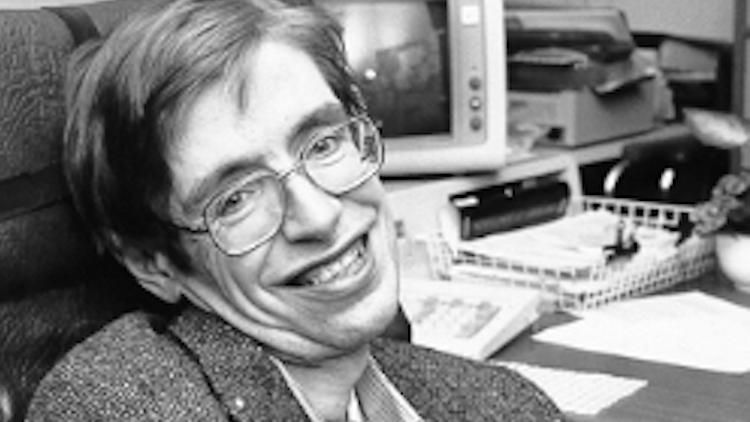Today, on March 14, 2018, the universe lost someone who is perhaps one of the only people on Earth who knew its secrets: Stephen Hawking. He passed away peacefully after a truly unmatched career in physics in the company of his three children at his home in Cambridge, England.
Hawking is best known for his studies of black holes and his Theory of Everything, which examines the origin and existence of our universe. He wrote all of those findings down in layman's terms in his bestselling book "A Brief History of Time" and his legacy changed the course of scientific study.
He was famously diagnosed with ALS at the age of 22 while studying at Cambridge. Doctors told him in 1963 that he would only have two years to live, but he went on to live over five decades after that. Here are 10 of Stephen Hawking's accomplishments that changed the world forever.
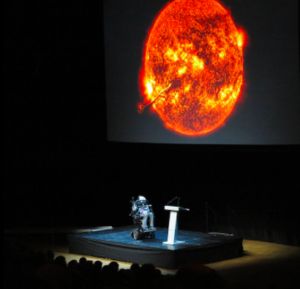
1. He proved the existence of gravitational singularities.
Alongside Roger Penrose, Stephen Hawking proved the existence of singularities. Singularities are one-dimensional points that contain infinite mass in an infinitely small space. In a singularity, space-time curves infinitely and the laws of physics effectively cease to exist. Hawking posited that the universe may have begun in a singularity.
2. He co-discovered the laws of black hole mechanics.
Along with James Bardeen and Brandon Carter, Hawking outlined the four laws of black hole mechanics, which are basically the rules by which black holes abide.
3. He discovered Hawking radiation.
Named for its discoverer, Hawking radiation is the radiation emitted by black holes. Before Hawking discovered this radiation, it was believed that nothing could escape from a black hole, but his findings ran counter to that belief. He found that black holes could emit radiation until they exhausted their energy and collapsed.
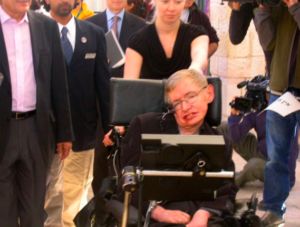
4. He backed up the theory of cosmic inflation.
Cosmic inflation is the theory that after the Big Bang, the universe expanded rapidly and exponentially until moving into a slower expansion. Hawking was able to produce calculations that reinforce the idea that cosmic inflation created galaxies.
5. He gave us insight into what our universe looked like when it was born.
With James Hartle, Hawking developed the Hartle-Hawking model of our early universe. Paradoxically, however, the model posits that time did not exist before the Big Bang and thus, our concept of a "beginning" in regard to the universe is pointless. Because the universe had no time or spatial boundaries at its birth, defining its physical birth as such is meaningless. The theory is still upheld today.

6. He changed the model physicists use to think about the universe.
The position of the Hartle-Hawking model leads to this next point. Hawking and Thomas Hertog used this model to propose a new way of thinking about the universe. Because the start point is something we cannot understand fully, it is more useful to look at the universe from a top-down model than it is to look at it from a bottom-up model. When we start at the top, we start with what we know: the universe as it exists right now.
7. He wrote "A Brief History of Time."
If you've gone cross-eyed up to this point reading about the previous six accomplishments, then you'd appreciate Hawking's bestselling book "A Brief History of Time." This book was written in layman's terms to describe Hawking's Theory of Everything. In 20 years, he sold 10 million copies of the book and it was featured in the U.K.'s Sunday Times Bestseller List for 237 weeks in a row.
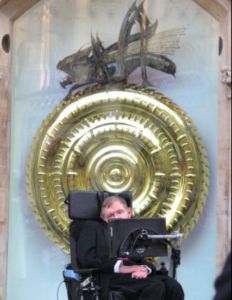
8. He contributed immensely important books and essays to the field of physics.
Among his most influential are "Black Holes and Baby Universes and Other Essays," "The Universe in a Nutshell," and "Mathematical Breakthroughs That Changed History."
9. He became one of the most awarded scientists in history.
After announcing his Hawking radiation findings in 1974, Hawking became one of the youngest people ever appointed to the Royal Society of London. He was made Commander of the Order of the British Empire in 1982, won the Gold Medal of the Royal Astronomical Society, and given the Paul Dirac Medal by the Institute of Physics. He and Penrose also won the prestigious Wolf Prize.
Bonus: The nature of his studies prevented Hawking from ever getting a Nobel prize since the empirical requirements for Nobel prizes make it nearly impossible for scientists studying things like black holes to win.
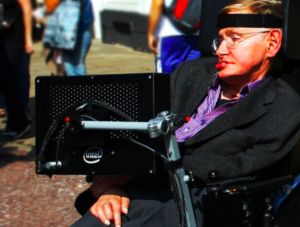
10. Hawking ranked as one of the 100 Best Britons by the BBC.
Standing out among every single British person in human history as one of the top 100 is no small feat. Even better, the rankings are decided by the public. He came in at number 25. He was also awarded a Medal of Freedom by President Barack Obama in 2009.
It's pretty hard to boil such an accomplished man's most incredible achievements down to a Top 10 list, but these 10 moments do speak to Stephen Hawking's immense contribution to his field and the world at large. The universe was so very lucky to have him.
The post 10 Major Accomplishments By Stephen Hawking That Totally Changed The World appeared first on Goodfullness.
